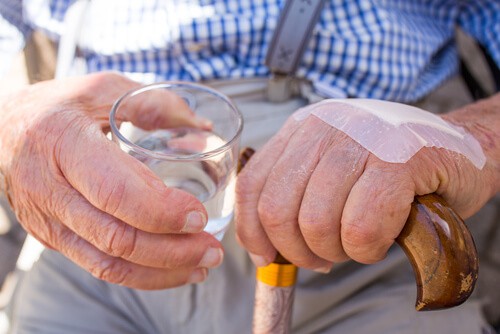Dehydration & Malnutrition
Last updated Monday, December 2nd, 2024

Effective October 1, 2009, the Connecticut Legislature enacted the Nursing Home Residents’ Bill of Rights. Section 2, Subsection E of the Residents’ Bill of Rights states:
Any [nursing home or long-term care] facility that negligently deprives a patient of any right or benefit created or established for the well-being of the patient by the provisions of this section shall be liable to such patient in a private cause of action for injuries suffered as a result of such deprivation. Upon a finding that a patient has been deprived of such a right or benefit, and that the patient has been injured as a result of such deprivation, damages shall be assessed in the amount sufficient to compensate such patient for such injury. In addition, where the deprivation of any such right or benefit is found to have been willful or in reckless disregard of the rights of the patient, punitive damages may be assessed.*

Get Your FREE Case Review,
In Person or Virtually Online
When a person enters a nursing home or long-term recovery center, the facility is responsible for determining a dietary plan that includes appropriate nutrition and hydration. The staff is responsible for monitoring the intake of food and beverages to make sure the resident is eating and drinking enough to meet his or her individual dietary needs and avoid the problems of malnutrition and dehydration. In the event that the patient is not eating or drinking sufficiently, the staff is required to inform the appropriate medical staff.
If your loved one in a nursing home or long-term care facility in Connecticut has suffered injury resulting from malnutrition, dehydration or improper diet, talk to an attorney on the nursing home negligence team at Wocl Leydon at our Stamford or Bridgeport office. We have a strong record of protecting the rights of people who have suffered injury while in the care of a professional nursing home, long-term recovery center or home health care provider.
We know the rules nursing homes in Connecticut must operate under, and we recognize the shortcuts the managers often take to save money. We will stand up and fight to protect the rights of your vulnerable loved one.

Get Your FREE Case Review,
In Person or Virtually Online
Sometimes, It Is Necessary to Sue to Make the Nursing Home Fix the Problem
Malnutrition or dehydration may be the first symptom of a deeper management problem at a nursing home. Most people don’t want to sue, but it is often the only way to make the management change their policies and improve the lives of the residents. By pursuing legal action, you can compel a care facility to make changes for the betterment of all patients.
From our offices in Stamford and Bridgeport, our lawyers represent clients in catastrophic injury litigation cases throughout Connecticut. Call us at 203.517.0456 or contact us by e-mail to arrange a free consultation with one of our experienced nursing home dehydration and malnutrition attorneys today.

